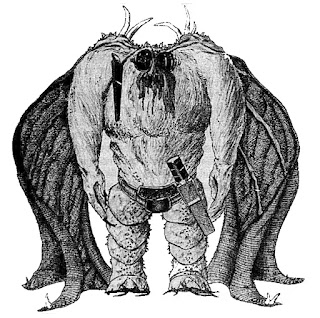Well, if you've been following my reviews of the Prey trilogy thus far, you'll know it hasn't set my world alight. Me on book 1: "But I wanted Picard, Riker, La Forge, and so on to do something interesting and clever, to figure something out. Hopefully that's what books 2 and 3 are for." On book 2: "This book feels like it's treading water for the people in it, even as the plot is always getting more complicated... Miller writes in a way that's fun and easy to read, I never dreaded this book or anything, but it doesn't feel like it has enough of a point to be three novels."
Star Trek: Prey, Book 3: The Hall of Heroes |
 |
|
Published: 2016 Acquired: July 2023 Read: September 2024 |
Eventually the Kinshaya invade, but by this point I was too disengaged to care. And to be honest, whether the Kinshaya invade the Klingon Empire, whether they fall subject to Breen manipulations, I found it difficult to care about. It's all pretty political and pretty abstract in terms of stakes. As I repeatedly commented about the first two books, it never really feels like anything is at stake here for the characters. Why do these events matter to Picard, to Riker, even to Worf? I very rarely felt as if they did. Over one thousand pages is ultimately a lot of time and space to devote to something with no there there.
The shame of it is I felt like there could have been something
really substantial to this, especially for Worf. Worf was discommendated
himself on screen but I don't think he ever hit the point of actually
questining the discommendation system, even if he himself was
done an injustice. I think an arc about Worf at first thinking what was
done to the Unsung was just, and then coming to reflect on what was done
to him, and the limits of Klingon honor, could have been very
interesting. But that's not here; even if the book ends with Worf
proposing some changes to the system, it doesn't feel like the book does
much to lead up to it. Or a book about Worf struggling to convince Kahless of this—now that
sounds like an epic struggle. But mostly Worf just seems to chill out
with Kahless and the Unsung, and then it all climaxes and ends.
I find it hard to say much about this series. Until this volume, which
got pretty boring, I would have said it was competently written. As I've
said before, Miller captures the voices of the preexisting characters
well, but doesn't really give them interesting, characterful choices to
make; his original characters could be interesting (I thought
Shift had real potential), but are in practice fairly one note. It's
weird, this is a thousand-page story in an era where Star Trek
books can in theory do whatever they want... but it feels like the
trilogy was written back in the late 1990s, with the goal of making sure
all the characters and all the politics had to be end up back where
they began so as not to upset anything the tv show might do.
 |
| a Kinshaya, from the old FASA Star Trek RPG via Memory Beta |
- There are a lot of callbacks here to Typhon Pact: The Struggle Within, which I don't think had ever been referenced in any other books before. I did appreciate Miller folding the political upheaval in those books into a broader narrative about the Kinshaya, though I don't think most Star Trek writers have been capable of handling the Kinshayan theocracy in an interesting or compelling way, and Miller is no exception.
- One of the High Council members here was also in the Prometheus trilogy, a very minor sliver of continuity that connects those books to the English-language Destiny-era novels. It is very minor, though; I had to ask the author on the TrekBBS what the connection was, because I had read there was one but had not noticed it at all!
- There's this whole exchange about the term "Unsung" on pp. 128-29 that makes no sense to me. Kahless asks if in Klingonese "Unsung" is rendered as lilIjpu' bomwI'pu' or ghe'naQDaj qonta' pagh, and then Worf tells him it was actually Hew HutlhwI'pu'. But... how are they having this conversation, if not in Klingon? Like, in what language is Kahless actually saying the word "Unsung"? How can he not know how the Unsung referred to themselves in Klingon if he must be talking to them all in Klingon? Did I miss some kind of reference indicating the Unsung are all speaking some other language? But even if they are, surely Kahless is speaking Klingon and communicating with them via the universal translator?
- As I did after reading Typhon Pact: Zero Sum Game, I continue to think that the Breen are an incredibly neat worldbuilding idea—solving continuity conundrums and creating cool story hooks—that books have never really done anything clever with, but this book comes the closest so far.
- The last scene where Riker hunts Korgh down is genuinely clever in its final line.
- I think Doug Drexler is very good at what he usually does... but cover art featuring characters is not what he usually does. What is going on with Worf's hair?
I read Destiny-era Star Trek books in batches of five every
few months. Next up in sequence: The Next Generation: Headlong Flight by Dayton Ward



